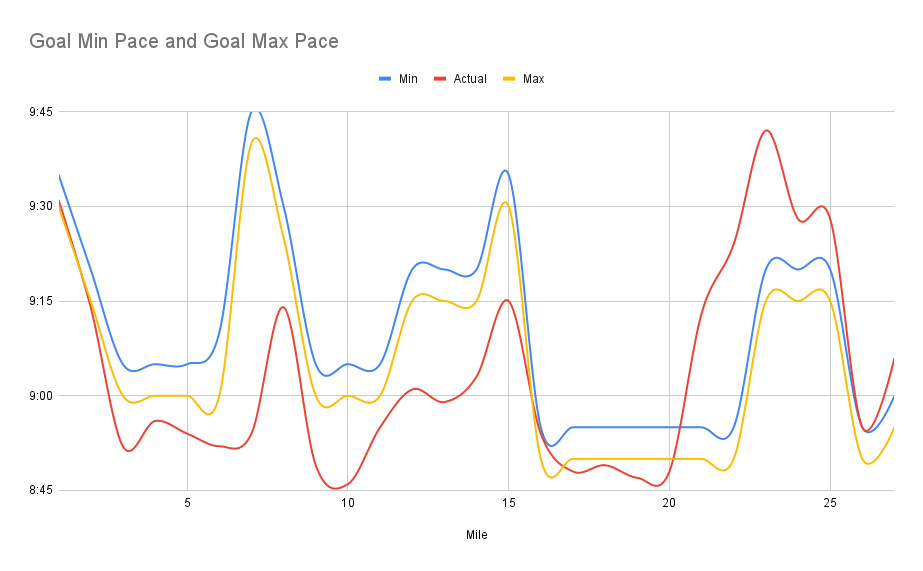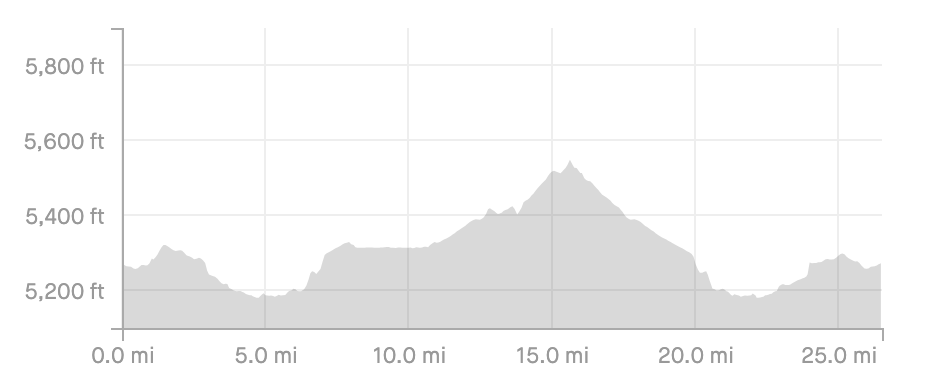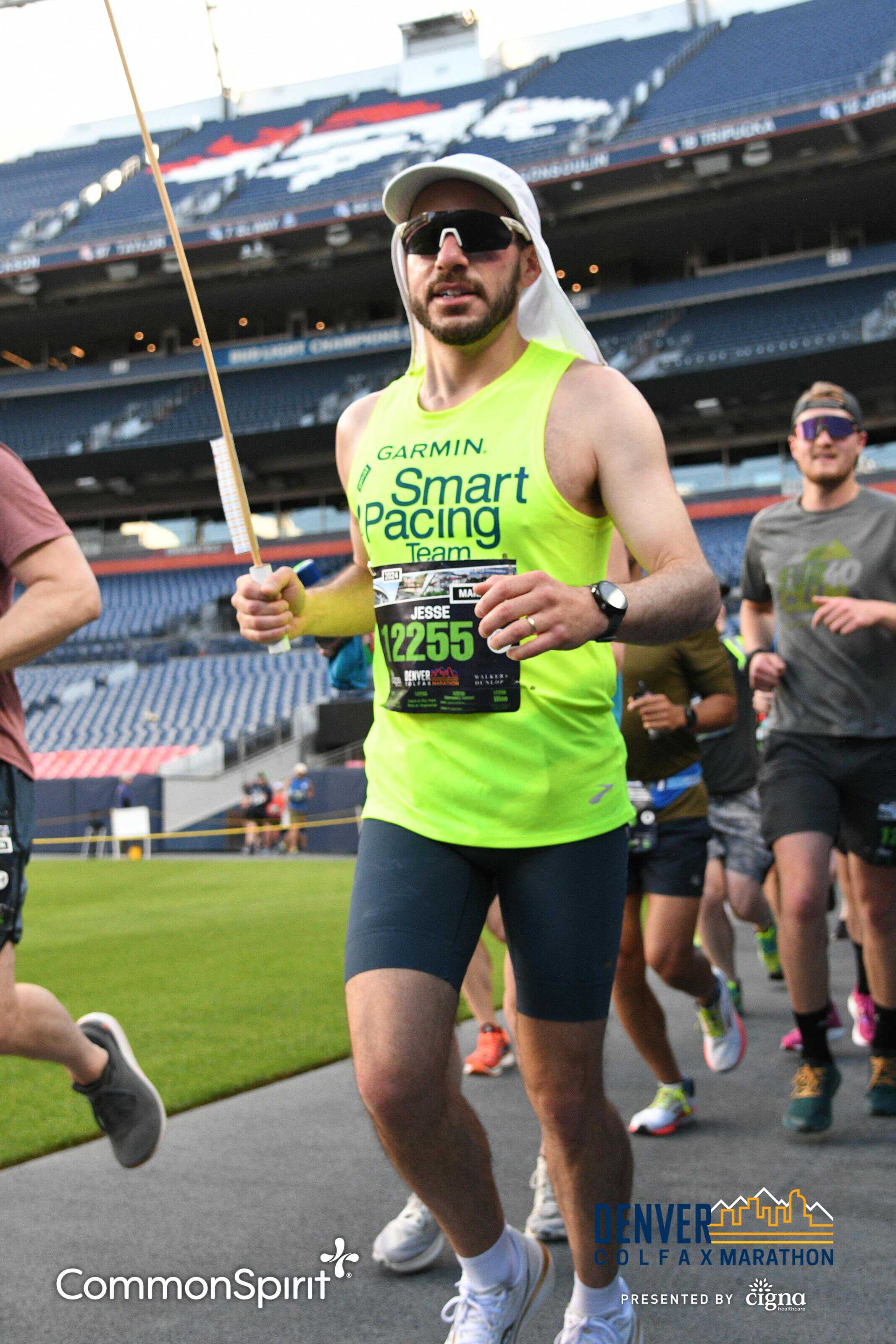Colfax Marathon 2024

Notes from leading the 4 hour pacing group
I paced the Colfax marathon for the second year. I was promoted from the 4:30 group to the 4 hour group this year.
To prepare, I spent the previous week waking up earlier each day by 15-30 minutes to make the early morning less painful. I strongly recommend this technique to future me. I ran about 24 miles during the week leading up the race and the week prior to that I capped out at 40 miles to try to ensure fresh legs for the effort.
I took an Uber to City Park where the race begins and ends. While I had no problem getting an Uber, I was not the only one trying to get a car at that time so I got gouged on price. Next time, I might consider scheduling an Uber in advance.
Race day began at 4:30 am for me. I arrived in the start area around 5:30am. Next time I think I would have enjoyed 10 to 20 more minutes so I could pee one more time before getting into the starting corral.
Once I was in position, my neon yellow pacing singlet and giant 4:00 flag attracted plenty of questions. I taped my pacing plan to the base of the flag so I had a handy visual to go along with my explanation to my corral mates of what my plan was.
The plan was to go out slow, be conservative on the early course uphills until mile 15, and then take advantage of the late race downhill. Colfax is a sneaky hard race. It gets really hot, there is no shade, and anyone visiting from sea level is going to be in trouble.
For the first few miles, I settled into my coaching role. I let people know my target pace for each mile, based on how far into the race we were and the elevation profile of the mile. I let them know what to expect each mile in terms of elevation. I reminded my group that the pace we were running should feel easy and that if it didn't, they needed to slow down. One axiom I shared to encourage people to be conservative was that slowing down 10 seconds early in the race could save 10 minutes at the end.
I ended up racing the first 15 miles faster than I had planned because I knew the temperatures were going to going to be warm for the second half of the race. Between miles 10 and 15, the course has a steady climb. I slowed the group down and gave people reassurance that we'd make it up between miles 15 and 20 on the downhill. I encouraged people to think about what they were grateful for at this tough point in the race.
At mile 14 I had to stop quickly to pee. I passed my flag to a steady runner and then pushed to catch back up with the group. I did not stop my watch so I knew that my mile time would be accurate in spite of the stop and then short burst of pace.
Speaking of watches, I did not have total run time visible on any of my Garmin data screens. This was a huge miss as it forced me to do a lot of estimating and math with time, which is very hard. Next time I need to have data fields for lap pace, lap distance, lap time, total time, heart rate, and maybe average pace.
During the down hill from 15 to 20 I tried to get people thinking about their form and heart rate. I tried to keep spirits high.
At mile 20 I shared that I'd be slowing down. I encouraged group mates who felt strong to push forward without me. A lot of racers who took off thanked me for getting them that far. I reassured everyone else that even with the slow down we were on track to finishing right at 4 hours.
The group got smaller at that point and I so I tried to pick up flagging runners during the final 10k. In the final stretch I stopped to pull in some more runners. My final chip time was 4:00:36.
I got a lot of thank you's at the end. One person even grabbed a selfie with me.
Over the course of the race I drank at every water station except maybe one. I also ate two full Clif bloks and one additional blok from a third package.
I enjoyed pacing, but I'm worried that the effort is going to impact my Bolder Boulder race in a week. I love marathon training and running 60 miles or more in a week. Putting in this kind of effort necessarily interrupts that routine. It's too hard an effort to not demand recovery and it's not hard enough to really increase my strength. It ends up being a very long and counterproductive (from a training perspective) zone 3 run. On the other hand, pacing the 4 hour group was a lot of fun. I'll have to keep all of this in mind as I plot out next year's running.


If you are interested in pacing Colfax, reach out to Eladio Valdez of Runners Edge Kansas City.


Member discussion